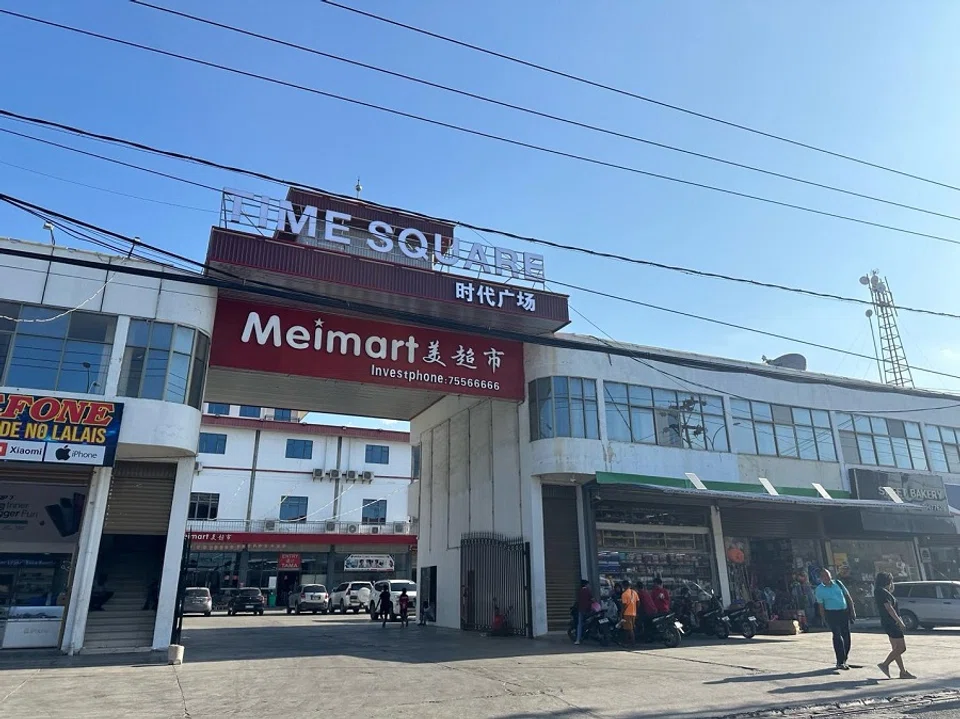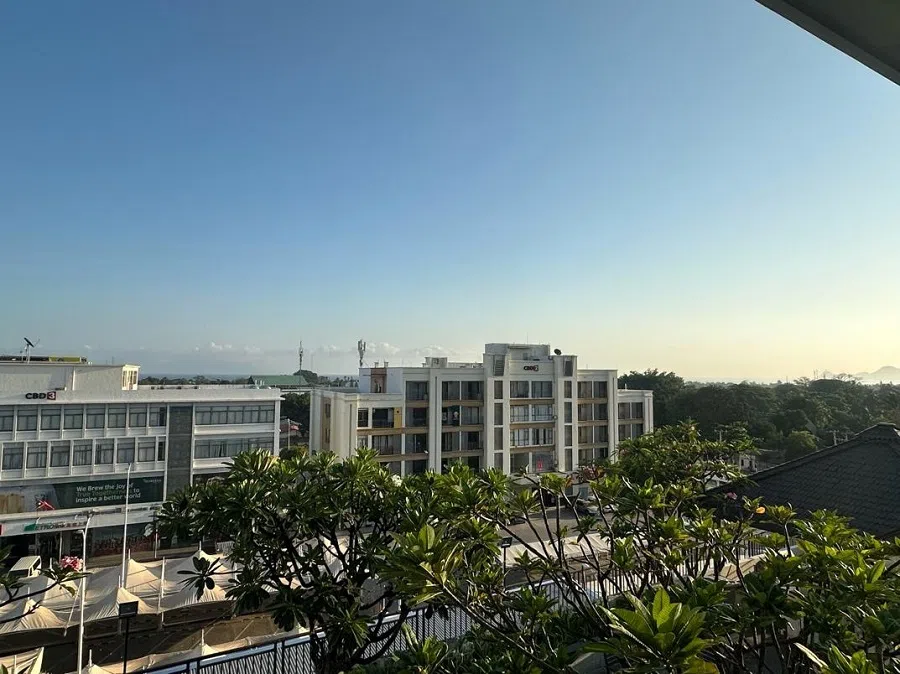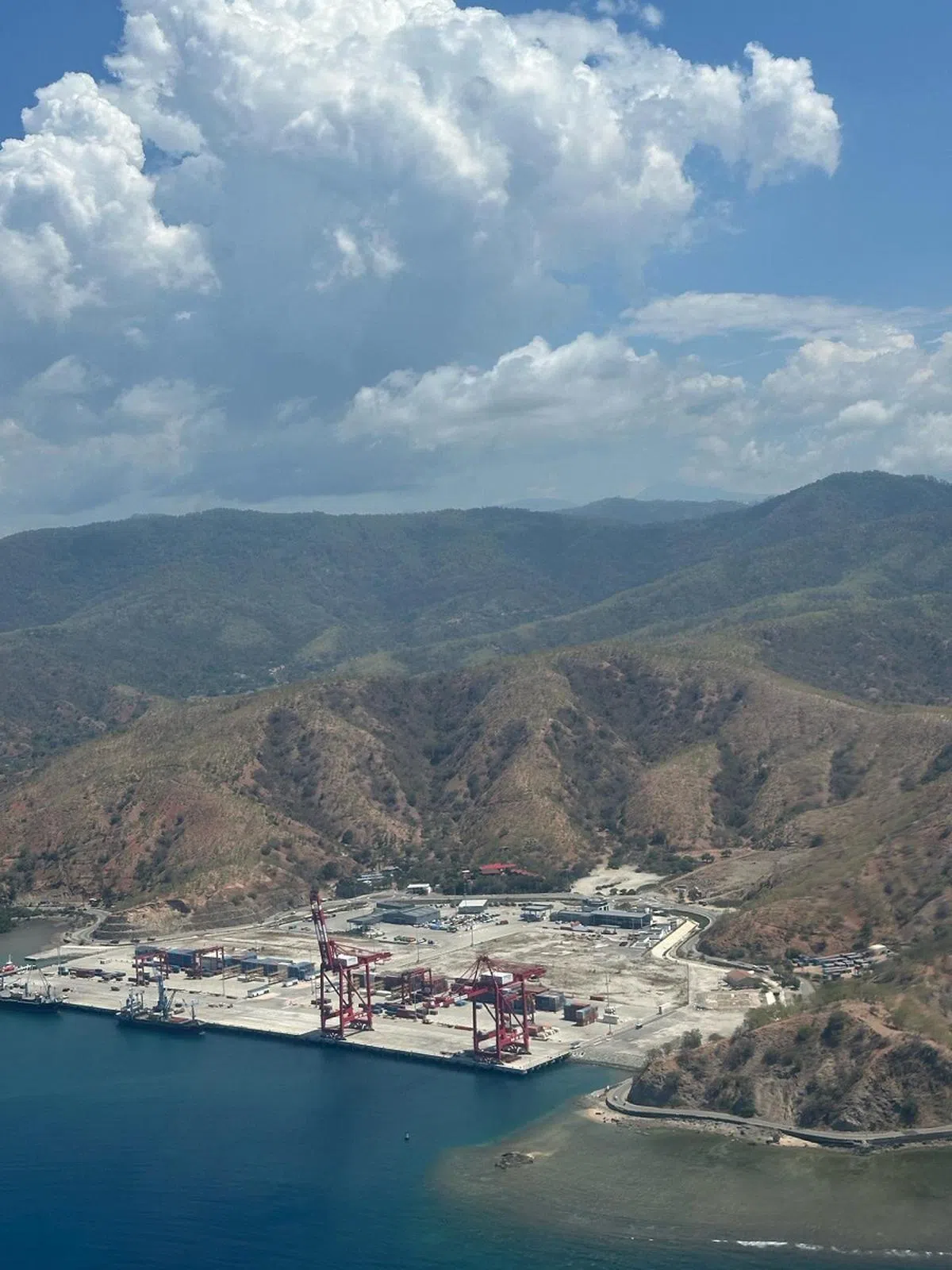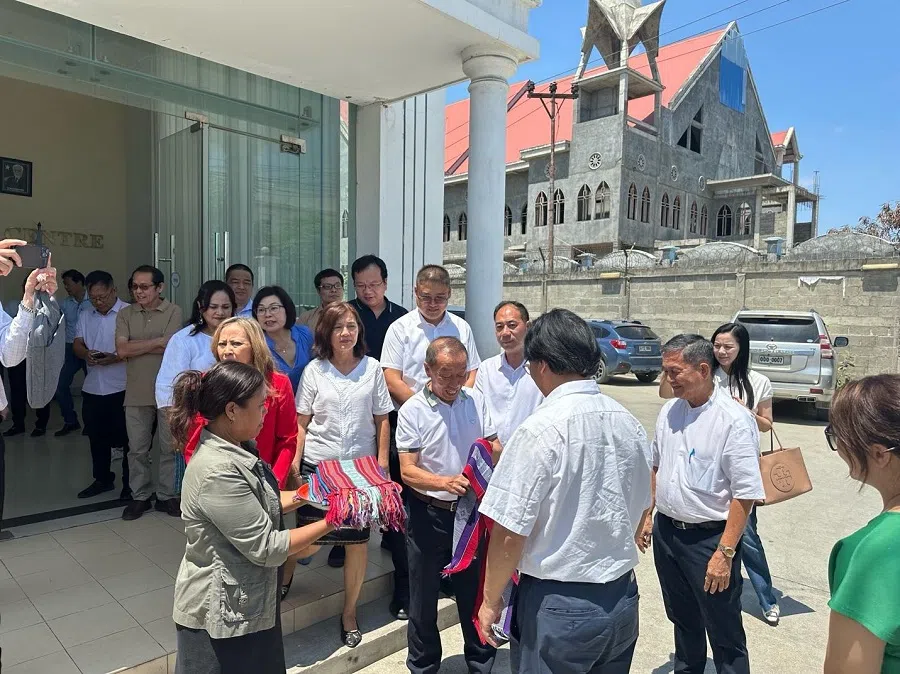What drives China’s economic engagement in Timor-Leste?
Findings from researcher Jackson Huang’s recent visit to Timor-Leste suggest that while Chinese economic engagement with Timor-Leste is often viewed as part of a broader “grand strategy”, the reality on the ground shows that local economic needs, market conditions and pragmatic considerations drive many aspects of the relationship beyond political agendas.

(Photos: Jackson Huang)
Since its launch in 2013, China’s Belt and Road Initiative (BRI) has frequently been criticised by the international community for its perceived political motives behind certain infrastructure projects. Critics argue that the initiative often serves as a tool for expanding China’s geopolitical influence rather than merely fostering economic development.
High-profile examples like the Hambantota Port in Sri Lanka, and the surge in Chinese investment in China-friendly governments in Central Asia and Africa, are often cited as evidence of this political dimension of China’s economic statecraft. These projects have raised concerns about China’s strategic use of economic influence to secure political and military footholds in critical regions.
The same approach has often been applied to reports on China–Timor-Leste relations, where China’s presence in the country is frequently interpreted through a political lens. This approach has often influenced interpretations of China–Timor-Leste relations, where China’s presence is viewed through a “grand strategy” framework.
In this narrative, China is seen as leveraging economic statecraft, including infrastructure investments, resource development and strategic alliances, to gradually gain influence — if not control — Timor-Leste. Examples frequently cited include Chinese commodities and state-owned enterprises (SOEs) involved in key local projects.
However, during my recent visit to Timor-Leste, I found that many of these assessments were exaggerated. Under the rhetoric of China’s grand strategy and growing influence in Timor-Leste, the reality is that China has offered very limited economic assistance or investment to the country. Pragmatic economic considerations continue to play a significant role for Chinese SOEs operating in the country, further emphasising the gap between political symbolism and tangible economic engagement.
China–Timor-Leste relations: hot politics, but cold economy?
China and Timor-Leste have enjoyed strong bilateral relations that date back to even before Timor-Leste’s independence. Historically, China supported the FRETILIN (Revolutionary Front for an Independent East Timor) government as early as 1975 and was one of the few countries to offer aid during East Timor’s struggle against Indonesian occupation. China was also the first country to recognise Timor-Leste’s independence, setting a solid foundation for future diplomatic ties.
Beyond importing large amounts of cheap Chinese products, Timor-Leste has not borrowed any significant loans from China, and less than 4% of its total overseas developmental aid comes from China.

Over the years, these relations have steadily improved. In 2023, China and Timor-Leste elevated their relations to a comprehensive strategic partnership during Timor-Leste Prime Minister Xanana Gusmão’s visit to Hangzhou, and in 2024, this partnership was further strengthened by Timor-Leste President Ramos-Horta’s first official state visit to China in July.
The growing bilateral cooperation and closer diplomatic ties between the two countries raised significant concerns within the region, particularly from Australia, which views China’s increasing presence in its strategic neighborhood with suspicion.
In this narrative, Timor-Leste’s strategic position — serving as a link between Southeast Asia and the South Pacific, and a hub between the Pacific and Indian Oceans — makes it geopolitically significant for China. Additionally, Timor-Leste has been a consistent supporter of Chinese initiatives like the BRI and the Asian Infrastructure Investment Bank (AIIB), while also holding a firm stance against Taiwan’s independence. Beyond political support, Timor-Leste is also rich in natural resources, such as oil and minerals, which could be of interest to China. As a result, some narratives suggest that China seeks to gain control over Timor-Leste, driven by its strategic location and resource potential.
What really comes from China
Despite the “hot” political relations between China and Timor-Leste, economic relations remain relatively “cold”. Beyond importing large amounts of cheap Chinese products, Timor-Leste has not borrowed any significant loans from China, and less than 4% of its total overseas developmental aid comes from China.
In terms of foreign investment, Timor-Leste receives the majority of its foreign direct investment (FDI) from countries such as Singapore, Thailand, Portugal, Australia and New Zealand. Chinese investments, by comparison, remain relatively modest, amounting to only US$3 million out of the total US$85 million in FDI in 2022. Moreover, most Chinese investments in Timor-Leste are from private companies, such as hotels and commodity shops, with no major Chinese SOEs involved.
... many Chinese entrepreneurs have migrated to Timor-Leste, establishing small businesses that cater to the daily needs of the population.
Along the streets of Dili, it is common to see many small grocery stores and equipment repair shops run by Chinese owners. In prominent shopping areas like Timor Plaza, Chinese brands such as Oppo and Gree are also increasing their presence. This phenomenon is not difficult to understand, given Timor-Leste’s lack of a manufacturing base, which means almost all everyday products are imported from overseas. Chinese products, known for their affordability and increasingly for their good quality, have naturally captured a large share of the local market. As a result, many Chinese entrepreneurs have migrated to Timor-Leste, establishing small businesses that cater to the daily needs of the population.
Furthermore, it is also important to consider the nature of the projects often cited as evidence of increasing China’s presence in Timor-Leste, including the Tibar Bay Port (managed by Africa Global Logistics and constructed by China Harbour Engineering); the national power grid (managed by Electricidade de Timor-Leste with sections developed by China Nuclear Industry 22nd Construction); the Suai Highway (managed by Timor-Leste’s Ministry of Public Works and developed by a joint venture between China Overseas Engineering and China Railway First Group); and government buildings such as the presidential palace and the foreign and defence ministries. These contracts were all awarded to Chinese companies through competitive bidding processes, rather than as direct investments from China.
Concerns with unbalanced economic relations
There is an essential difference between investment and the aforementioned projects. In these cases, the funding is provided by the Timor-Leste government, and ownership remains with Timor-Leste. Consequently, the perception among locals is quite distinct. However, some locals view these activities as Chinese SOEs “earning money from the Timor-Leste government” rather than contributing to the country’s economic development.
Some even claim that economic cooperation with China is resulting in a net loss for the country, as the benefits are not being offset by either aid or substantial investments.

This perspective was further reinforced in our discussions with local stakeholders. During a meeting with the Câmara Comércio Indústria Timor-Leste (Timor-Leste Chamber of Commerce and Industry), one of the representatives openly expressed his frustration over the influx of Chinese commodities. In his view, there is an increasing body of opinion among locals that the influx of Chinese products and the involvement of Chinese SOEs in government projects are taking money away from the Timorese people without adequately contributing to the local economy.
Some even claim that economic cooperation with China is resulting in a net loss for the country, as the benefits are not being offset by either aid or substantial investments. This sentiment reflects growing concerns that the economic relationship with China is unbalanced and not delivering the promised development returns.
Unstable business environment
I had the opportunity to join a panel discussion hosted by the Chinese Enterprise Association in Dili, which is composed of representatives from various Chinese SOEs operating in Timor-Leste, including China Harbour Engineering, China Railway, Shanghai Construction, Shandong Highway and more. These SOEs not only have a presence in Timor-Leste but are also involved in projects across Southeast Asia, as well as in Fiji and Papua New Guinea.
The panel aimed to explore the experiences and challenges these enterprises face while working in Timor-Leste, and it became clear that despite the strong bilateral political ties, significant economic drawbacks are hindering further investment.
During the discussion, the representatives raised a wide range of concerns about the economic environment in Timor-Leste that are affecting their willingness to engage in large-scale investments. A common issue that resonated with all the representatives was the lack of a strong investor protection framework and the high risk of making losses.
Furthermore, the unstable nature of Timor-Leste’s government exacerbates these concerns. The country has experienced frequent political shifts, which often result in inconsistent policy direction and leadership changes that undermine long-term planning for infrastructure projects.
“... While bilateral relations are important, as enterprises, we must consider the economic realities. We operate on an economic basis.” — a representative from a Chinese SOE operating in Timor-Leste

Many representatives noted that the government’s instability creates an unstable business environment, making it difficult for companies to predict the future of their investments. In particular, the risk of political turnover means that contracts or agreements made with one government may not be honoured by the next, further discouraging large-scale foreign investment.
Lack of profitable projects
Another major obstacle discussed was the lack of profitable projects in the country. Several representatives pointed out that, while Timor-Leste presents itself as an emerging market, the actual scope for economically viable projects remains limited. The country’s economy is heavily dependent on oil revenues, and there are few alternative sectors that present compelling opportunities for investors. Infrastructure projects, which often serve as a backbone for economic growth in other nations, are constrained by limited demand and lack of funding in Timor-Leste.
One of the representatives captured the frustration felt by many when he stated, “SOE money is money too. We also have relatively high requirements for profitability and cannot simply invest in projects that we know won’t yield returns. While bilateral relations are important, as enterprises, we must consider the economic realities. We operate on an economic basis.”
His remarks reflected the practical and increasingly profit-driven focus of Chinese SOEs, which, in contrast to earlier periods of China’s foreign investment strategy, are now under greater pressure to deliver commercial success, not just advance geopolitical or diplomatic objectives.
This sentiment was shared across the panel, reinforcing the notion that economic feasibility has become the primary driver for investment decisions. The overarching message was clear: without the right legal protections, political stability, and profitable opportunities, large-scale investments in Timor-Leste will remain limited, regardless of the diplomatic warmth between the two nations.
Conclusion: politics matters, but to what extent?
As mentioned at the outset, much of the analysis on China-Timor-Leste relations centres almost exclusively on political dynamics, with some interpretations even viewing Chinese economic engagement as part of a broader “grand strategy”. This perspective frames any China’s economic activities within the country as calculated moves to assert influence over the island nation.
While politics undoubtedly plays a role in shaping bilateral economic relations, an exclusive focus on political dynamics often overlooks the economic realities on the ground and the actual nature of these economic exchanges. This perspective can often miss how local economic needs, market conditions and pragmatic considerations drive many aspects of the relationship beyond political agendas.





